I recently spent some time researching goat meat for an article I wrote for Chronogram. My conclusion is that goat is in the process of transforming from an "ick" meat to the "it" meat.
If you're like the vast majority of Americans, you've never eaten goat meat. If that's the case, you're missing out because goat meat is good on so many levels:
- Taste - the meat is mild with a pleasing flavor. It's not gamy or "goaty" at all. In fact, I find the flavor to be a lot milder than that of lamb.
- Nutrition - goat meat is higher in protein and iron and lower in fat, saturated fat and cholesterol than beef, pork, lamb and chicken. It's very lean and has almost exactly the same amount of calories as chicken!
- Environmental impact - goat is a more eco-friendly meat than beef and many other meats. They require few inputs and less space to raise than beef and lamb, reducing the size of their carbon footprint. What's more, they have a taste for many of the problem weeds and bushes like multiflora rose that plague farmers so browsing goats on disrupted pasture can help reclaim that land without the use of fossil fuels.
Rather than making me shy away from eating goat, meeting these animals and seeing firsthand that they live a good life, doing what goats are meant to do, made me feel good about choosing to eat this meat rather than buying beef or lamb from a faceless herd of miserable animals raised on a factory farm thousands of miles away.
In addition to interviewing a bunch of Hudson Valley goat farmers, I also talked to a bunch of Hudson Valley chefs who are big fans of goat meat. This hearty, flavorful recipe for goat ragout with figs, rosemary and thyme over pappardelle comes from chef Rich Parente at the Clocktower Grill in Brewster, NY - one of the restaurants I wrote about for Hudson Valley Magazine's best new restaurants of 2014.
You stew the goat meat slowly with figs, fresh rosemary and thyme with beef stock and tomatoes and a base of carrots, onions and garlic. When the meat is meltingly tender to the point of falling off the bone, you serve it over wide ribbons of pappardelle pasta topped with a sprinkling of fresh parsley.
It is savory and sweet and warm and comforting and was a hit with my whole family, which is saying something these days since my kids are usually not into anything that does not come in a box labeled Annie's mac n cheese.
Start by dredging the chunks of goat stew meat in flour.
Then brown the chunks in a Dutch oven in batches to avoid crowding them so that you can be assured of an even sear.
Then remove the meat and set it aside. Deglaze the pan with a little red wine then add the carrots, onions and garlic to the pot and saute them for a few minutes.
Once the vegetables are softened, you add the tomato puree and the beef stock and simmer for a few minutes before adding a cornstarch slurry to thicken the sauce and tossing in the chopped dried figs and the fresh herbs.
Then you cook it 'til it's falling off the bone, remove the bones and serve over pasta.
Go get your goat! There's a listing of places you can find this humanely, sustainably raised meat available here. If you're not in the Hudson Valley, ask around at your farmers market, check with your local butcher or, if all else fails, order it via mail from from Heritage Foods USA, a Brooklyn-based mail-order operation.
-- print recipe --Goat Ragout with Rosemary and Figs over Pappardelle from Chef Rich Parente of the Clocktower Grill in Brewster
Serves 4 to 6
Ingredients
* 2 lbs bone-in goat stew meat
* 2 large onions, diced
* 3 medium carrots, diced
* 4 cloves garlic, chopped
* 3 tbsp olive oil
* 1 tbsp chopped fresh rosemary
* 1 tbsp chopped fresh thyme
* ¼ cup roughly chopped Italian parsley
* 1 quart beef stock
* 1 quart tomato puree or diced fresh tomatoes
* 1 cup diced dried figs
* ¼ cup all-purpose flour
* ½ cup red wine
* ¼ cup cornstarch slurry (1 tbsp cornstarch dissolved in roughly ¼ cup warm water)
* Sea salt
* Freshly ground black pepper
* 1 lb pappardelle pasta, cooked, drained, and tossed with olive oil
Directions
1. Preheat the oven to 250°F. Mix the flour with a teaspoon or so of sea salt and a few grinds of black pepper, then dredge the stew meat in it, doing your best to coat all sides with the mixture.
2. Heat the oil over medium heat in a Dutch oven (you can also use a wide-bottomed metal pot or sauté pan with high sides, but it must be oven-safe since you'll be finishing this dish in the oven) until it begins to shimmer, then add the meat to the pan, turning it to brown it on all sides— roughly two-three minutes per side. You'll most likely need to do this in two batches to avoid crowding and achieve the proper sear.
3. Remove the meat and set it aside in a bowl. Add the onions, carrots, and garlic to the pan and sautè for 3-5 minutes, until the onions start to become translucent and the carrots begin to soften. Deglaze the pan with the red wine, using a wooden spoon to scrape up any odds and ends and ensure that nothing is stuck to the bottom.
4. Add the meat back to the pan along with the beef stock and the tomato and bring to a simmer. Add the cornstarch slurry to thicken the sauce and stir thoroughly with a fork to distribute it throughout. Simmer for roughly 5 minutes before adding the chopped herbs and figs, then season with more salt and pepper, cover, and place in the oven for three to four hours, checking a few times to stir and make sure there's enough liquid, until the meat is fork tender. Take the meat off the bones and return the shredded meat to the pot before serving over your favorite pappardelle pasta.
Wine pairing: Parente recommends Warwick Winery's Black Dirt Red for its fruity forward notes of cherry, plum, and fig.
Serves 4 to 6
Ingredients
* 2 lbs bone-in goat stew meat
* 2 large onions, diced
* 3 medium carrots, diced
* 4 cloves garlic, chopped
* 3 tbsp olive oil
* 1 tbsp chopped fresh rosemary
* 1 tbsp chopped fresh thyme
* ¼ cup roughly chopped Italian parsley
* 1 quart beef stock
* 1 quart tomato puree or diced fresh tomatoes
* 1 cup diced dried figs
* ¼ cup all-purpose flour
* ½ cup red wine
* ¼ cup cornstarch slurry (1 tbsp cornstarch dissolved in roughly ¼ cup warm water)
* Sea salt
* Freshly ground black pepper
* 1 lb pappardelle pasta, cooked, drained, and tossed with olive oil
Directions
1. Preheat the oven to 250°F. Mix the flour with a teaspoon or so of sea salt and a few grinds of black pepper, then dredge the stew meat in it, doing your best to coat all sides with the mixture.
2. Heat the oil over medium heat in a Dutch oven (you can also use a wide-bottomed metal pot or sauté pan with high sides, but it must be oven-safe since you'll be finishing this dish in the oven) until it begins to shimmer, then add the meat to the pan, turning it to brown it on all sides— roughly two-three minutes per side. You'll most likely need to do this in two batches to avoid crowding and achieve the proper sear.
3. Remove the meat and set it aside in a bowl. Add the onions, carrots, and garlic to the pan and sautè for 3-5 minutes, until the onions start to become translucent and the carrots begin to soften. Deglaze the pan with the red wine, using a wooden spoon to scrape up any odds and ends and ensure that nothing is stuck to the bottom.
4. Add the meat back to the pan along with the beef stock and the tomato and bring to a simmer. Add the cornstarch slurry to thicken the sauce and stir thoroughly with a fork to distribute it throughout. Simmer for roughly 5 minutes before adding the chopped herbs and figs, then season with more salt and pepper, cover, and place in the oven for three to four hours, checking a few times to stir and make sure there's enough liquid, until the meat is fork tender. Take the meat off the bones and return the shredded meat to the pot before serving over your favorite pappardelle pasta.
Wine pairing: Parente recommends Warwick Winery's Black Dirt Red for its fruity forward notes of cherry, plum, and fig.
You might also like:
- Hearty Beef Stew with a Hint of Moroccan Flavor
- Braised Chicken with Onions, White Wine & Mustard from Rue Tatin
- Ratatouille & Sausage Pot Pie with Cornmeal Biscuit Topping

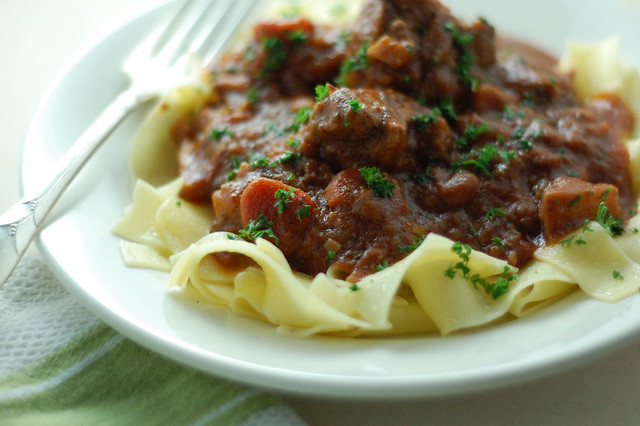
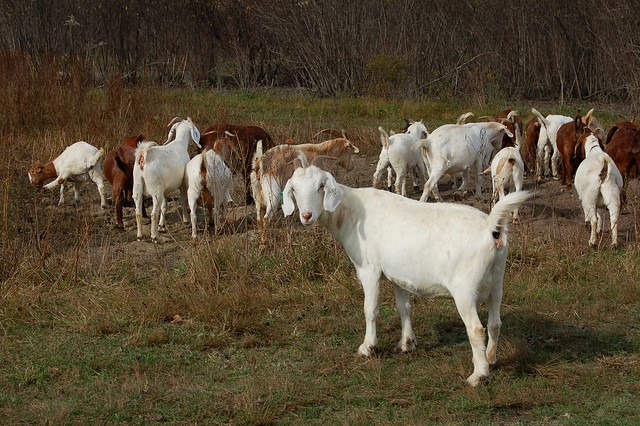
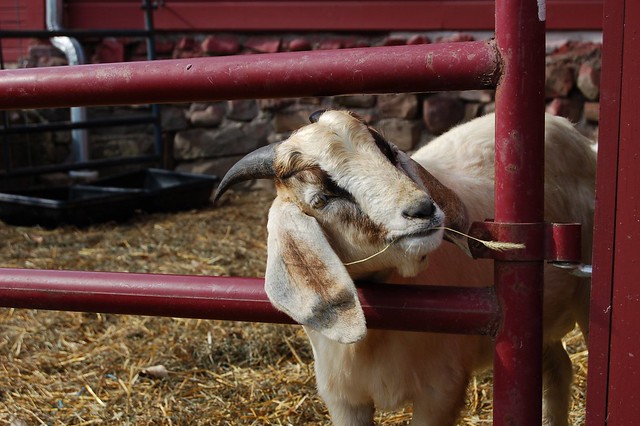
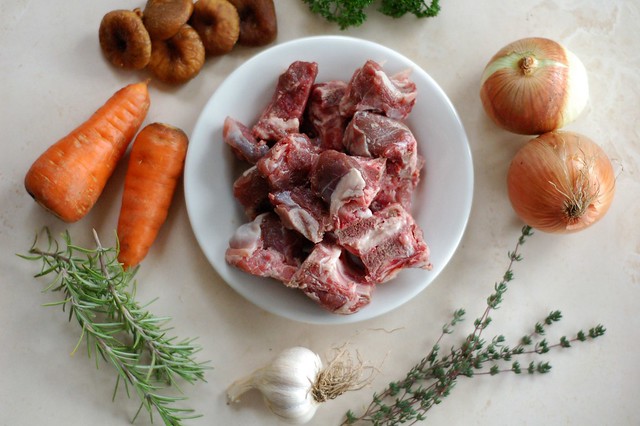
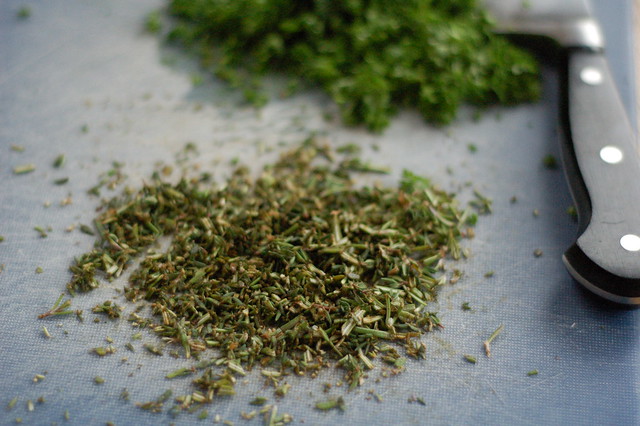
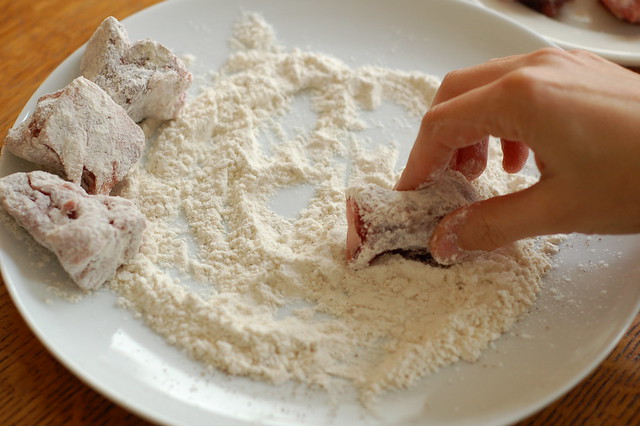
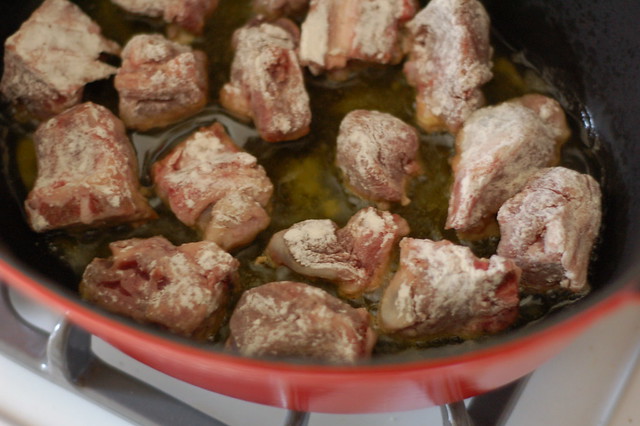
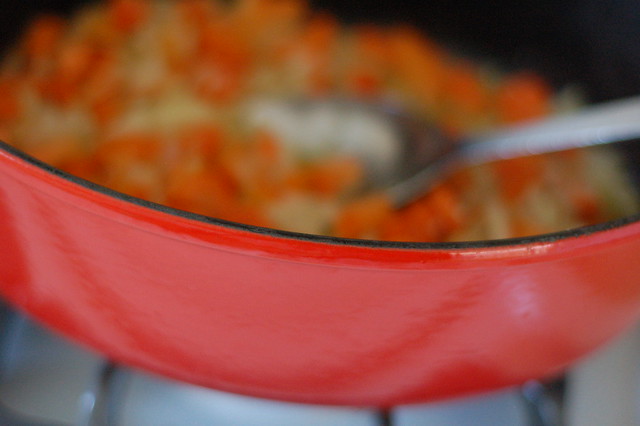
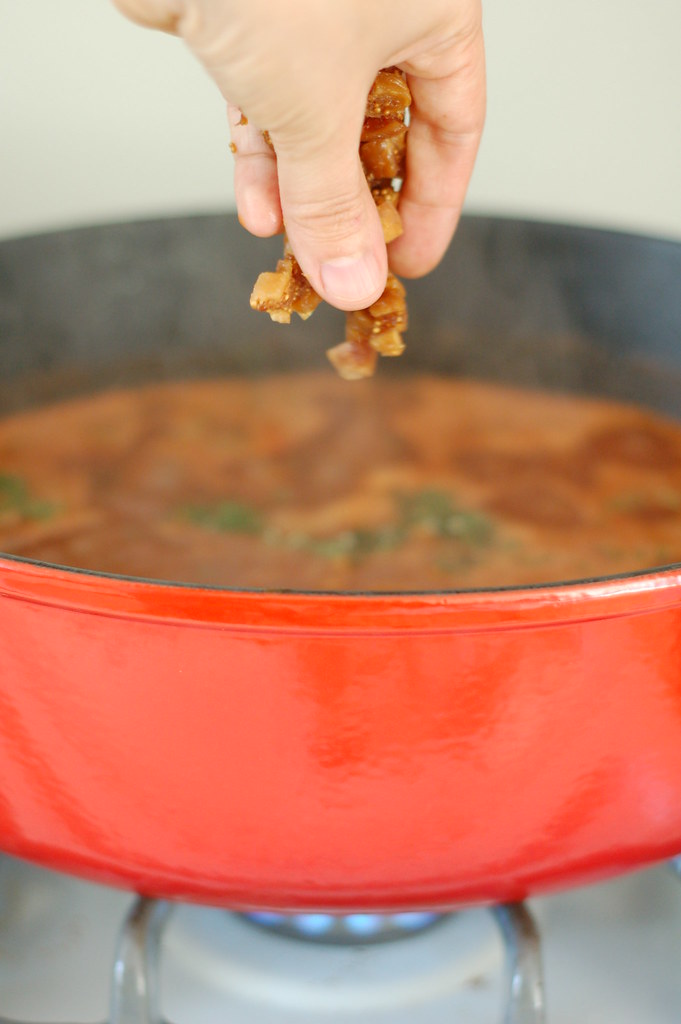
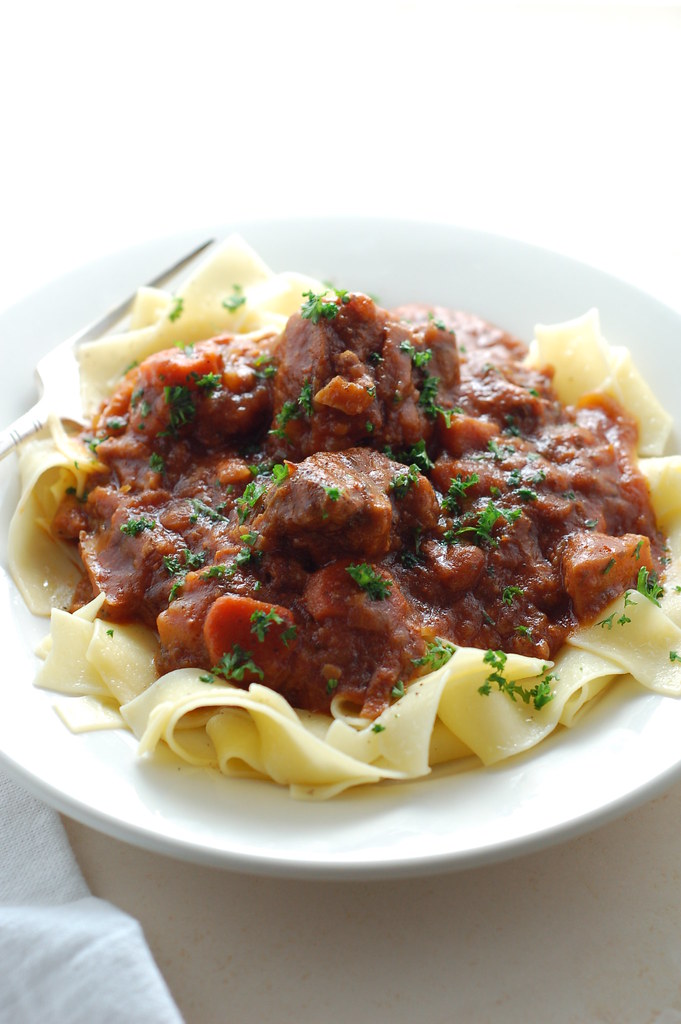
1 comment:
Eve,
This is a great post, thank you. If we could just orient ourselves to more eco-friendly meats, the world would feel better wouldn't it? I can't wait to try this!
Susan
Post a Comment